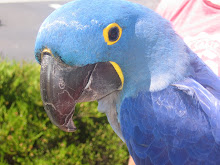
The Ingomar Club, nee the Carson Mansion, may be the most photographed building in the U.S. It was built in 1885 by lumber and railroad magnate William Carson from the eclectic and absurdly controversial design of a pair of San Francisco architects. Originally from the province of New Brunswick, Canada, Carson came to California to look for gold, and found redwood instead.

The last of his descendants to live in the Mansion moved out in 1940, leaving it vacant for 10 years. It was in danger of being demolished so that the property could be developed, but a group of local businessmen purchased the building for use as a private men’s club. They decided to call it The Ingomar Club after the theatre which Carson had constructed and named after his favourite play, “Ingomar the Barbarian”. Club members pay for maintenance and improvement of the building and its grounds. Fine dining can be had in the new boxy restaurant addition overlooking the Bay.

The purpose of the club is for the socializing and enjoyment of its male-only members. Initiation fees and dues are steep, entrance is allowed only to members and their guests, except on rare occasions women are forbidden, dress code is absolute. Within its walls, business fellows are hailed and well-met, wheels are dealed and deals wheeled, power is broked, movers and shakers of the community discuss their next move and how it will shake out.
The Penile Cupola

Periodically through the years women have tried to gain entrance…local businesswomen wanting membership and access to the inner circle…visiting notables wanting a tour of the building or a meal on the wrong day…Verboten! Not one angry, frustrated, little toe through the doorway.

We make up stories about the building and imaginary occupants. Its crazy, crenellated, Goth, bats-in-the-belfry exterior lends itself to tales of debauchery, bestiality, slavery and abuse, bondage and discipline days. The political secrecy of a Bohemian Club or Skull & Bones, the fantastic excess of a Disney castle, accessible as the Pope’s bedchamber, with overtones of Abu Ghraib. Reality, I am sure, is probably dry as toast, but what we’re not allowed to see, we can imagine any way we want. Although, actually, I have been inside – one Christmas party, one bank business reception, one luncheon. It’s very beautiful – full of wonderful wood – a magnificent playhouse.








